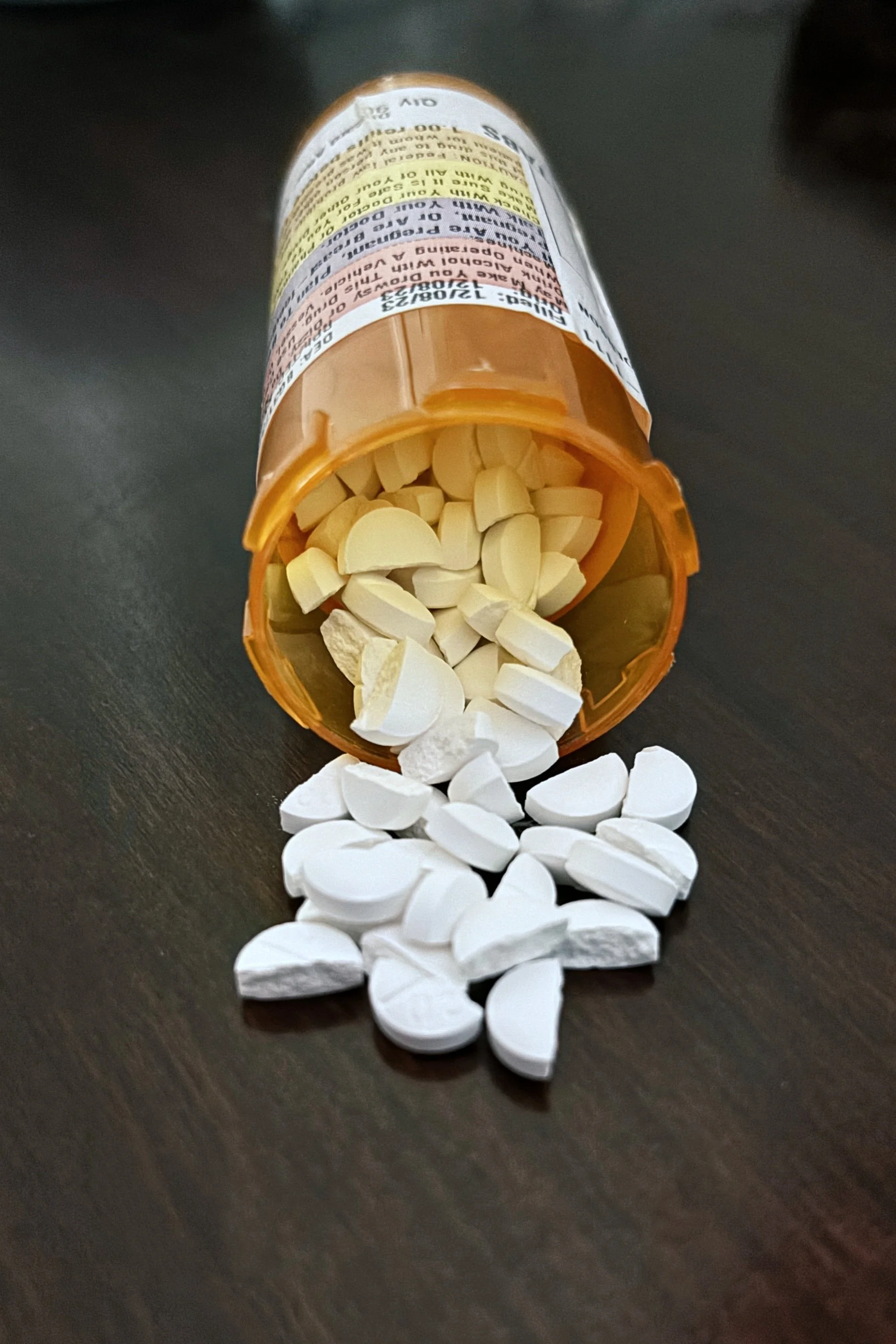Note to Self: Maybe it Doesn't Have to Be So Hard

Would you ever tell a diabetic that if they just get up at 5AM every day and journal for 20 minutes, their pancreas is sure to start producing insulin?
Would you ever tell someone with a broken leg that all they need is a better bedtime routine and 15 minutes of meditation a day for their leg to heal?
I think you know where I’m going with this.
My sister-in-law came for an impromptu visit several weeks ago. She’s going through a Rough Time, and needed to get away from things for a night. Her story is not mine to tell, but suffice it to say that of the top 20 life events on The Stress Scale, she’s going through five.
I was so glad for the opportunity to sit with her and support her. I was happy to hear that she’d recently started therapy, as well as mental health medication. She was taking care of herself, one step at a time.
She’d never taken mental health medication before. I’ve taken it on and off since my early 20s, so I was quick to offer up some validation.
“It’s the boost you need to get out of bed in the morning and do the work. It takes enough of the challenge away that you can do the work. It reminds you that you have the power to get through the day.”
I told her there’s no shame in needing it. There’s no reason to “tough it out.”
We talked some more. We ate some ice cream. We watched cooking shows. When she left the next day, I found myself reflecting on our conversation the previous night. And I realized that I’d given her advice that I wasn’t following myself.
I started having panic attacks in January of 2022. It happened that my first appointment with a new psychiatrist was scheduled the same week I had my first panic attack. I’d booked the appointment months prior (post-pandemic psychiatric bottleneck), when I’d made the decision to try mental health medication again. So in what can only be described as sheer grace, I was able to apply an immediate medical intervention to the panic attacks.
Among other, more fast-acting anxiety medications, the doctor prescribed 10mg of Lexapro a day. I took my medication diligently, and also started acupuncture treatments and monthly massages. I increased my therapy to once a week.
Over the next year, I gradually got better. I was able to stop taking everything except the Lexapro. My therapy sessions went back to every other week. I was doing well.
And then my father retired and moved six hours away. For the first time in two decades, he wouldn’t live just a few minutes down the road. I wouldn’t see him for Sunday dinners anymore.
I felt my anxiety and depression ramping back up, so I talked to the doctor about increasing my Lexapro to 20mg a day. It worked.
By mid-2023, I was feeling pretty good, though still not great. And yet, I (on my own), decreased my daily Lexapro back down to 10mg a day. On the next refill of my Lexapro prescription, I used my pill cutter to cut 90 pills in half.
Because I was able to “get by” on 10mg before.
Because I didn’t want to be a person who needed 20mg of Lexapro.
Because a part of me thought that, the lower the dose with which I’m able to function, the stronger I must be.
Lo and behold, life was noticeably harder. I had to work more at keeping myself calm. I had no energy. I had lots of ideas, but no motivation to accomplish any of them. I spent months like that, trying everything to feel better except going back to 20mg of Lexapro.
And then my stepsister visited and I told her that maybe life didn’t have to be so hard.
My pills are still cut in half. But now, I take two halves of Lexapro a day — back to the 20mg per day dosage. You know, the one that WORKED before. I’ve been doing it for several weeks, and I have more energy, I’m more creative, I’m motivated to write more, work on my Etsy shop, and cook more.
I’m not a doctor. I’m merely sharing my personal experience with mental health medication. I have multiple licensed professionals guiding me. So in no way am I telling you what would be best for you.
But what I will tell you is that maybe — just maybe — life doesn’t have to be as hard as it is. Maybe there are ways you can support your healing and growth that, despite social stigma, would be really beneficial for you. You’re worth the effort.
I am only here to invite you to explore all of the options. And to give yourself patience and grace — so much grace — while you do.
Elizabeth Brunetti is a silver linings expert and recovering scaredy-cat. When she’s not talking FRIENDS, she likes to write about things like food, body love, and pretty much anything else her polymathic tendencies lead her toward on her blog, Take On E.